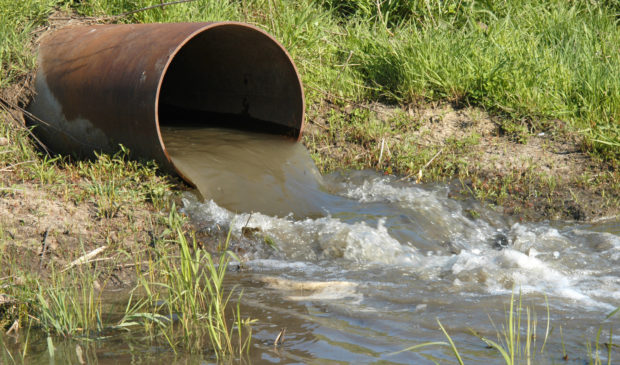EPA drops objection to Dripping Springs’ permit
Tuesday, July 11, 2017 by
Jo Clifton The U.S. Environmental Protection Agency has withdrawn its interim objection to Dripping Springs’ application to the Texas Commission on Environmental Quality to discharge 995,000 gallons of treated wastewater into a tributary of Onion Creek.
Dripping Springs officials have always said that even with the permit they would initiate a beneficial reuse program for the wastewater and would only rarely discharge into the creek.
Although Dripping Springs celebrated the EPA decision by issuing a press release Monday, neither the city of Austin nor the citizens group known as Protect Our Water is satisfied with proposed revisions to the permit.
Stuart Henry, attorney for Protect Our Water, told the Austin Monitor he was surprised by the decision. “EPA copped out totally, and in my view it’s an extremely disgusting response, not worthy of the EPA even under the Trump administration.”
He explained, “Overall, the (EPA) response letter was that this proposed discharge was better than septic tanks – that’s basically what the EPA said. And I think … that misses the point totally. But I suspect that somebody went and talked to EPA and gave them that false dichotomy.”
According to Dripping Springs’ news release, the EPA stated that with significant population growth in the area “EPA believes having the wastewater treatment facility is necessary to maintain the high quality waters in Onion Creek. … Additionally, a wastewater treatment facility will contribute significantly fewer pollutants, nutrients etc. to Onion Creek than individual septic systems, which are currently being used by existing homes in the area.”
Dripping Springs Mayor Todd Purcell said, “It’s incredibly gratifying to receive the kind of feedback we just did from EPA. The country’s leading environmental regulatory agency has validated the hard work we put in to develop the most environmentally sensitive plan for expansion possible. I hope this signals to our community how committed we truly are to doing everything we can to protect our community’s quality of life.”
Chris Herrington, chief engineer for Austin’s Watershed Protection Department, said Monday, “Right now we’re still waiting to see the information that TCEQ provided to EPA. … We disagree with EPA’s findings and we believe the draft permit, even with the TCEQ proposed revisions, is not protective of Onion Creek water quality.
“We’re continuing to work with Dripping Springs and other entities to see if we can negotiate a mutually agreeable solution that would be protective of Onion Creek,” he concluded.
A press release from Protect Our Water explained that the group petitioned EPA last fall and that because of that petition TCEQ is now requiring Dripping Springs to include a total nitrogen limit of six milligrams per liter. In the original proposal, there was no total nitrogen limit. In addition, the group said that Dripping Springs will now be required to dechlorinate any effluent prior to discharge. As initially proposed, Dripping Springs would not have been required to dechlorinate the wastewater, which would have endangered wildlife in and along Onion Creek, the group said.
However, Protect Our Water goes on to say that because Dripping Springs’ proposed wastewater discharge will still endanger Onion Creek, the Trinity Aquifer and habitat of the endangered Barton Springs salamander, “POW will continue to oppose this permit and encourage Dripping Springs to adopt a 100 percent beneficial re-use solution.”
Henry noted that Protect Our Water pointed out the presence of endangered species downstream of the discharge. He said there have been discoveries of the Barton Springs salamander less than 2 miles down from the discharge – “which clearly has the potential to damage the species.”
If Dripping Springs and those who oppose the permit do not reach agreement, TCEQ would schedule a contested case hearing, probably in early 2018, Henry said. However, he said he was hopeful that his group would reach an agreement with Dripping Springs now that there are new members on City Council.
Photo: Public Domain, Link.
The Austin Monitor’s work is made possible by donations from the community. Though our reporting covers donors from time to time, we are careful to keep business and editorial efforts separate while maintaining transparency. A complete list of donors is available here, and our code of ethics is explained here.
You're a community leader
And we’re honored you look to us for serious, in-depth news. You know a strong community needs local and dedicated watchdog reporting. We’re here for you and that won’t change. Now will you take the powerful next step and support our nonprofit news organization?









